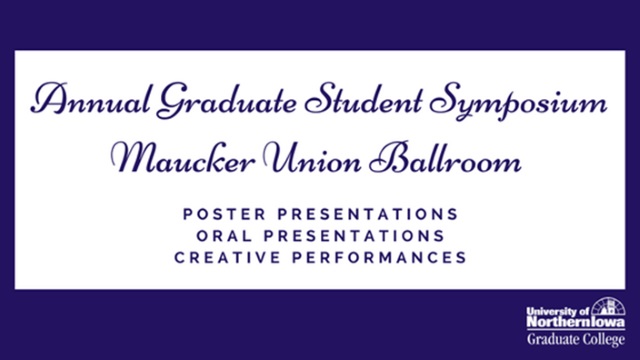
Complete Schedule
Award Winner

Recipient of the 11th Annual Graduate Student Symposium Scholarship Award, Oral Presentations, State College Room - First Place (2018)
To go to the Graduate Student Symposium event page, Click here
Presentation Type
Open Access Oral Presentation
Keywords
English teachers--Self-rating of; Reflective teaching; Grading and marking (Students);
Abstract
Engaging in reflective practices is important for a practitioner’s professional growth. As a doctoral student I, by profession an English as a foreign language (EFL) instructor, entered into a relationship of critical friendship with a colleague in Bangladesh. We chose to undertake the task of reflecting on written corrective feedback (WCF) on student writings that we strongly felt needed attention in EFL environment, i.e., our own teaching context. The self-study method was used as a systematic inquiry to focus on our WCF practices. Following Samaras and Roberts’ (2011) guidelines for instructors newly engaging in self-study and based on the concept of faculty learning community, we engaged in the following practices: (1) reflective writings based on prompts, (2) review of WCF literature, (3) discussions based on prompts, (4) electronic correspondence (e.g., email, Viber, Skype). We negotiated the tensions among ourselves and our context thereby addressing public credibility. Dynamic interplay between reflection and sharing through digital technology provided the basis for quality in the self-study research and supported knowledge-building process. For data analysis, open coding (Strauss & Corbin, 2008) was applied to the data sources. Codes were adjusted after reviewing each other’s analysis. Analytic themes were developed from the transcribed Skype discussions, journal reflections, and email contents. The self-study resulted in several learning outcomes. Most importantly, recalibration of beliefs about WCF, and development of a context-sensitive approach to providing WCF supported by critical friendship and scholarly readings. Results are expected to encourage professional development through self-initiative not widely practiced in EFL contexts.
Start Date
3-4-2018 1:00 PM
End Date
3-4-2018 4:00 PM
Year of Award
2018 Award
Faculty Advisor
Benjamin Forsyth
Department
Department of Curriculum and Instruction
Copyright
©2018 Mahjabeen Hussain
File Format
application/pdf
Embargo Date
3-30-2018
Transforming Professional Learning Using Self-Study in an EFL Context
Engaging in reflective practices is important for a practitioner’s professional growth. As a doctoral student I, by profession an English as a foreign language (EFL) instructor, entered into a relationship of critical friendship with a colleague in Bangladesh. We chose to undertake the task of reflecting on written corrective feedback (WCF) on student writings that we strongly felt needed attention in EFL environment, i.e., our own teaching context. The self-study method was used as a systematic inquiry to focus on our WCF practices. Following Samaras and Roberts’ (2011) guidelines for instructors newly engaging in self-study and based on the concept of faculty learning community, we engaged in the following practices: (1) reflective writings based on prompts, (2) review of WCF literature, (3) discussions based on prompts, (4) electronic correspondence (e.g., email, Viber, Skype). We negotiated the tensions among ourselves and our context thereby addressing public credibility. Dynamic interplay between reflection and sharing through digital technology provided the basis for quality in the self-study research and supported knowledge-building process. For data analysis, open coding (Strauss & Corbin, 2008) was applied to the data sources. Codes were adjusted after reviewing each other’s analysis. Analytic themes were developed from the transcribed Skype discussions, journal reflections, and email contents. The self-study resulted in several learning outcomes. Most importantly, recalibration of beliefs about WCF, and development of a context-sensitive approach to providing WCF supported by critical friendship and scholarly readings. Results are expected to encourage professional development through self-initiative not widely practiced in EFL contexts.


